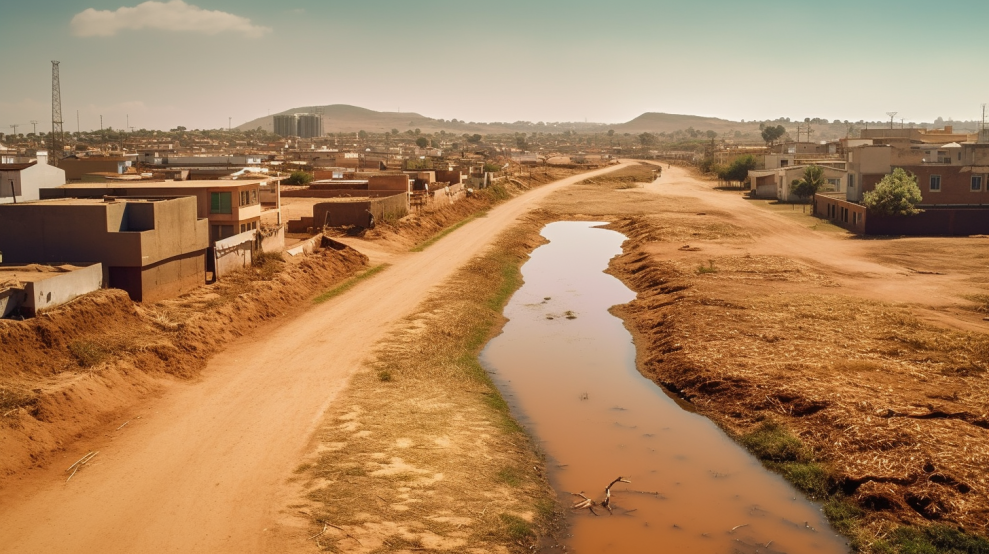- 1. Promote Water Conservation
- 2. Develop Sustainable Agriculture Practices
- 3. Improve Water Infrastructure
- 4. Implement Rainwater Harvesting
- 5. Promote the Use of Greywater
- 6. Implement Water Restrictions
- 7. Increase Public Awareness
- 8. Encourage Research and Innovation
- 9. Promote Sustainable Tourism
- 10. Collaborate with Other Countries
- 11. Conclusion

Drought is a natural disaster that occurs when there is a severe shortage of water supply in a particular area. Drought can have devastating impacts on agriculture, economy, and the environment. South Africa has been experiencing recurring droughts in recent years, which have adversely affected the country’s food production, water supply, and economic growth. In this article, we will explore ten ways to prevent drought and the cases in South Africa.
Promote Water Conservation
Water conservation is one of the most effective ways to prevent drought. It involves the efficient use of water resources and reducing water wastage. South Africa can promote water conservation by implementing water-efficient technologies, promoting the use of water-saving devices such as low-flow showerheads, and encouraging people to practice water-saving habits such as turning off taps when not in use.
Develop Sustainable Agriculture Practices
Agriculture is one of the biggest consumers of water in South Africa. Developing sustainable agriculture practices can significantly reduce water usage in the agricultural sector. This can be achieved by promoting the use of drought-resistant crops, efficient irrigation techniques, and reducing food waste.
Improve Water Infrastructure
South Africa needs to improve its water infrastructure to prevent drought. This includes the construction of new dams, upgrading existing infrastructure, and implementing water management systems. Investing in water infrastructure will not only prevent drought but also improve access to clean water for the people of South Africa.
Implement Rainwater Harvesting
Rainwater harvesting is an effective way to prevent drought. It involves the collection and storage of rainwater for later use. South Africa can implement rainwater harvesting by promoting the use of rainwater tanks, installing rainwater harvesting systems in public buildings, and providing incentives for individuals and businesses to install rainwater harvesting systems.
Promote the Use of Greywater
Greywater is wastewater from household activities such as laundry, dishwashing, and bathing. It can be treated and reused for non-potable purposes such as irrigation and toilet flushing. Promoting the use of greywater can significantly reduce the demand for fresh water and prevent drought in South Africa.
Implement Water Restrictions
Water restrictions can be an effective way to prevent drought by reducing water usage during times of low rainfall. South Africa can implement water restrictions by regulating water usage for agricultural, commercial, and domestic purposes. This can be achieved through the imposition of fines for excessive water usage and limiting water supply during times of drought.
Increase Public Awareness
Increasing public awareness about the importance of water conservation can prevent drought. South Africa can promote public awareness through education campaigns, social media, and public service announcements. This can help to change attitudes towards water usage and promote sustainable water practices.
Encourage Research and Innovation
Research and innovation can play a vital role in preventing drought. South Africa can encourage research and innovation by investing in water research, promoting collaboration between research institutions and the private sector, and providing incentives for the development of new water-saving technologies.
Promote Sustainable Tourism
Tourism is a significant contributor to South Africa’s economy, but it can also put pressure on water resources. Promoting sustainable tourism can prevent drought by promoting water conservation practices in the tourism industry. This can include the promotion of eco-tourism, the use of water-efficient technologies in hotels and resorts, and the implementation of water-saving measures in tourist attractions.
Collaborate with Other Countries
Drought is a global issue, and collaboration between countries can play a vital role in preventing drought. South African government can collaborate with other countries through international agreements, sharing knowledge and resources, and promoting sustainable water practices on a global scale.
Conclusion
Drought is a significant threat to South Africa’s economy, agriculture, and environment. However, there are many ways to prevent drought, from promoting water conservation to collaborating with other countries and encouraging innovation and research. By implementing these measures, South Africa can reduce its vulnerability to drought and ensure sustainable access to water resources for its people. It is essential for the government, private sector, and individuals to work together to address the issue of drought and take proactive measures to prevent its occurrence. By doing so, South Africa can safeguard its water resources and ensure a brighter future for generations to come.
